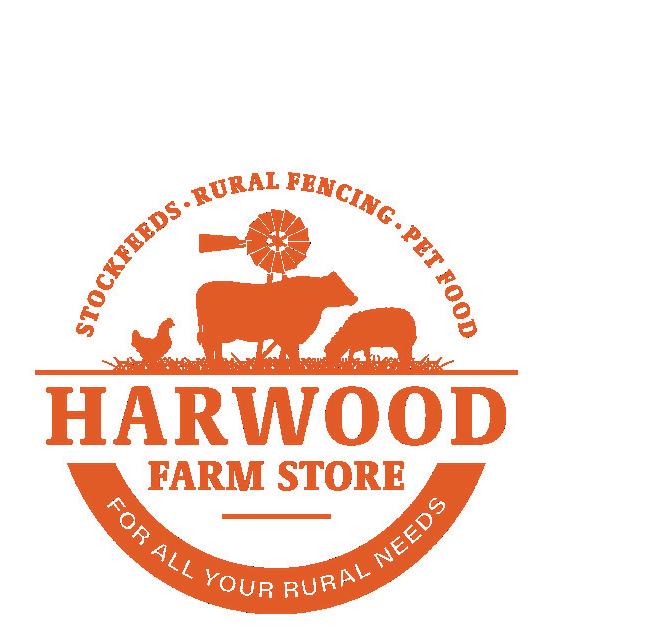
5 minute read
‘Cost of living’ budget does little to stem rising food prices as farmers taxed more
The ‘cost of living’ budget is a missed opportunity to address food price infation, according to Australia’s peak farm body.
National Farmers’ Federation President, Fiona Simson, said the budget does nothing to get to the heart of rampant food price infation – which NFF polling shows is weighing on the minds of 8 in 10 Australians.
“We know that Australians are feeling the pinch of their weekly shop. This budget ignores practical solutions that could have provided a double-whammy of price relief for households and a stronger more vibrant agriculture sector.”
The NFF has pointed to road funding, tax incentives and measures to address worker shortages as areas where tonight’s budget falls short.
“Right along the supply chain, the businesses which grow, process and transport our food and fbre are under immense pressure.
“Whether it’s workforce shortages, damaged roads, or the cost of capital upgrades – there are issues that need urgent attention if we want to achieve price relief for consumers.
“Sadly, tonight’s budget fails to act on these in any meaningful way.”
Increased biosecurity funding includes a tax whack for farmers
Farmers acknowledge an increase in government biosecurity spending, which extends beyond the forward estimates for the frst time.
“We welcome the Government’s commitment to cement and increase baseline Commonwealth funding into the budget, including through some increased chargers on importers and travellers. It’s important to see that locked in,” Ms Simson said. However, farmers hoping to see an increase in biosecurity funding have been dealt a bittersweet hand, with a surprise raid on farmers’ hip pockets set to help bankroll the system.
Farmers will face a bill equivalent to 10 per cent of their industry-led agricultural levies – levies which already fund many biosecurity activities and organisations. Farmers are already a signifcant contributor to the system in recognition of the benefts it provides the sector.
The increase will be imposed on products from 1 July 2024, after a period of industry consultation.
Government must act to bring down grocery prices
NSW Farmers has called upon the federal government to crack down on big businesses driving up the cost of groceries by abusing market power.
When the Reserve Bank of Australia lifted interest rates to an 11-year high this week, NSW Farmers Business, Economics and Trade Committee chair John Lowe said, more stress was placed on families experiencing cost of living stress. Mr Lowe said serious competition reform needed to be delivered by the federal government as part of next week’s budget.
“We know food is the second-largest household expenditure behind rent or mortgage repayments, and the Australian Bureau of Statistics reported food spending increased by 12.8 per cent in the 12 months to February 2023,” Mr Lowe said.
“But we also know the cost of groceries is increasing not just because of infation, but because of years and years of consolidation in the food processing and retail sector.

“The move to have farmers foot the bill is a bitter pill to swallow. We’re already signifcant fnancial contributors.
“What’s more, we bear the cost of managing historical pest and disease incursions and face the enormous threats posed by pests and diseases on our doorstep.”
“After years of consultation and discussion, we’d hoped to see a scheme such as a broad-based container levy - that forced risk creators to underwrite the system.

“It’s extremely disappointing to have to continue waiting for a meaningful contribution from risk creators.”

Natural Heritage Trust to support farmers to lower emissions
There’s welcome clarity on the Natural Heritage Trust’s $302.1 million over fve years to support farmers’ transition to a low emissions future and strengthen agricultural sustainability.
The NFF supported Independent Member for Indi, Helen Haines’ proposal, consistent with NFF recommendations, for regional independent extension offcers to assist farmers to better understand carbon both from an on-farm and market perspective.
“This is a critical announcement that will help farmers understand and respond to climate change, and access new environmental markets.
“NFF will seek to work with the Government on the design and implementation of this measure.”
We also welcome the restating of the measure that would support the introduction of legislation to treat carbon and biodiversity income as farm income.
Road funding on the road to nowhere
Calls for urgent funding to repair and improve Australia’s regional and rural road network have gone unanswered by the budget.
“Over the past few months alone, devastating foods have swallowed crops and pastures and caused major infrastructure damage, creating heartache for farmers and food shortages in our supermarkets.
“The $250 million in new funding committed is barely a drop in the ocean in terms of what’s needed.
“Repairing our roads means strengthening our connection to markets, making food more available and more affordable for
Australians. This is a missed opportunity to bring down costs in the food supply chain.”
Business investment incentives fall short
The NFF welcomes support for small businesses to invest in electrifcation and energy effciency through the Small Business Energy Initiative.
This means farmers will save on energy bills with an extra 20% deducted on eligible depreciating items like energy effcient fridges, heat pumps and batteries, but it fails to include renewable energy generation like solar panels.
The Instant Asset Write-Off has been extended another year, now with a cap set at $20,000 per asset.
“It’s a lopsided compromise. Farmers are looking at ways to bring down the increasing energy burden and the incentive will help spur this along.
“But it’s disappointing the two incentives fall far short of the previous uncapped Instant Asset Write-Off which gave farm businesses far more reach to increase productivity.”
“Implementing recommendations from the ACCC’s 2020 Perishable Agricultural Goods Inquiry would be an excellent starting point to bring food prices down for consumers,” Mr Lowe said.
PALM support welcomed, but lacks detail
The NFF cautiously welcomes the Government’s investment in the Pacifc Australia Labour Mobility (PALM) program.
The Government has committed $370.8 million over 4 years to expand and improve the PALM scheme, to support sustainable scheme growth and improve support for workers in line with Australian and Pacifc aspirations.
“While we welcome the investment in one solution to ease the labour crisis facing Australian farmers, the Government continues to force industry to put all our eggs in one basket.
“This funding needs to improve access to the scheme for small producers. If the scheme continues to be inaccessible to small producers, it is diffcult to see how it will answer our workforce issues.” of the nation’s competition watchdog and make our markets fairer for everyone.” Among the ACCC recommendations NSW Farmers wanted to see implemented were:
“Where once there were many businesses in the food sector, the level of market concentration we see today has led to incredible power imbalances that are driving up the cost of food for consumers.”
Farmers had campaigned long and hard for fairness in the market,
Mr Lowe said, and while the voluntary Food and Grocery Code was supposed to improve the behaviour of retailers and wholesalers towards suppliers, it had been found by the Australian Competition and Consumer Commission to have “signifcant shortcomings”.

People Product Partnerships
“The entire reason the ACCC came to be in the frst place was to protect the consumer, and it’s about time these recommendations were taken seriously.
“If the federal government is serious about tackling some of the cost-of-living problems facing Australian families in next week’s budget, then it needs to listen to the expert advice
• Making the Food and Grocery Code mandatory with civil penalties for breaches
• An economy-wide prohibition on unfair trading practices
• An overhaul of the current merger and acquisition approval process There also needs to be an analysis of supply chain profts, with a focus on markups and price gouging.










